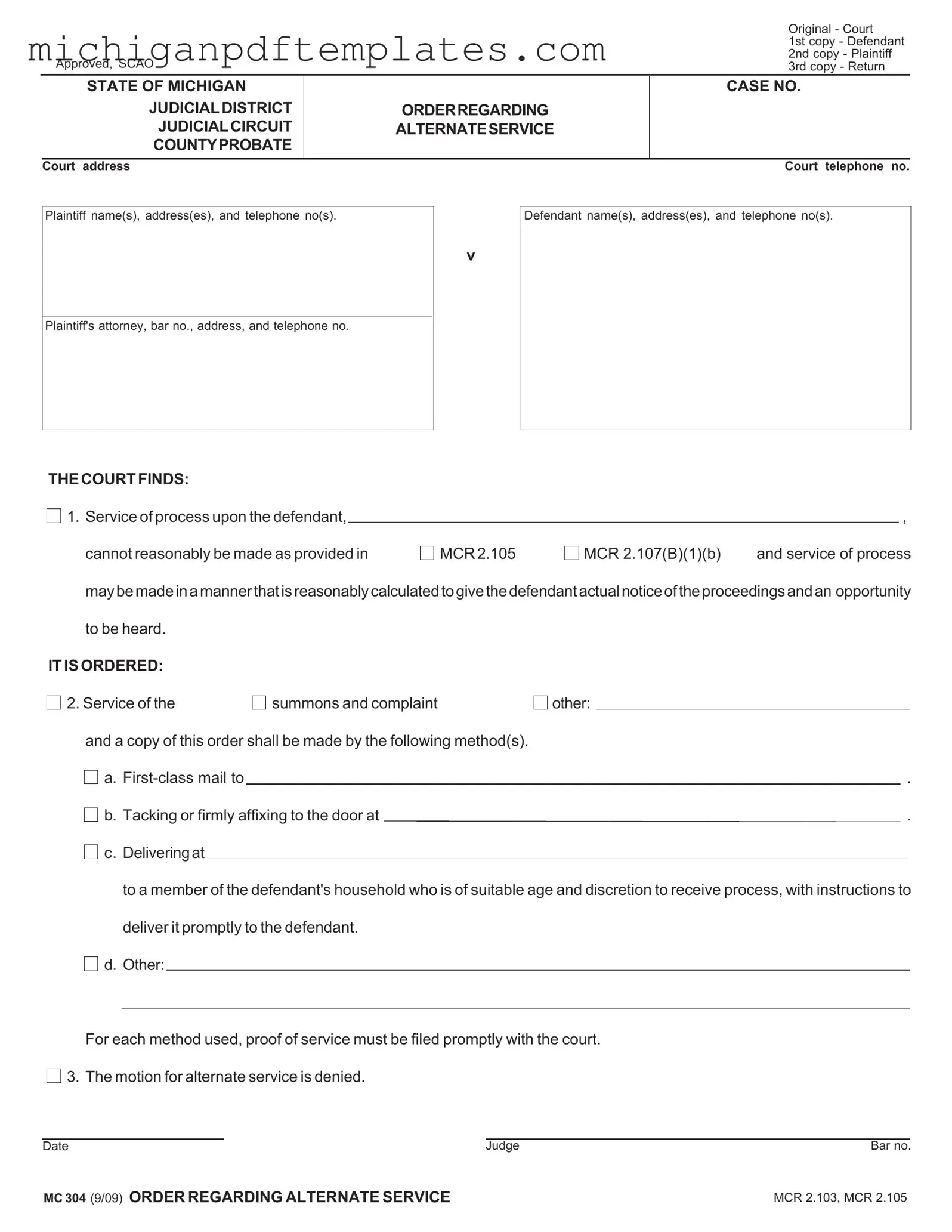Fill in Your Mc 304 Michigan Form
The MC 304 Michigan form serves as a critical document in the legal process, specifically designed to facilitate alternative service of process when traditional methods are not feasible. This form allows the court to approve different ways to notify a defendant about legal proceedings, ensuring they receive actual notice and an opportunity to respond. Understanding how to properly fill out and utilize this form can significantly impact the progress of a case.
Ready to fill out the MC 304 Michigan form? Click the button below to get started!
Get Your Form Now

Fill in Your Mc 304 Michigan Form
Get Your Form Now

Get Your Form Now
or
▼ PDF Form
Finish this form quickly and move on
Fill in and complete Mc 304 Michigan online quickly.